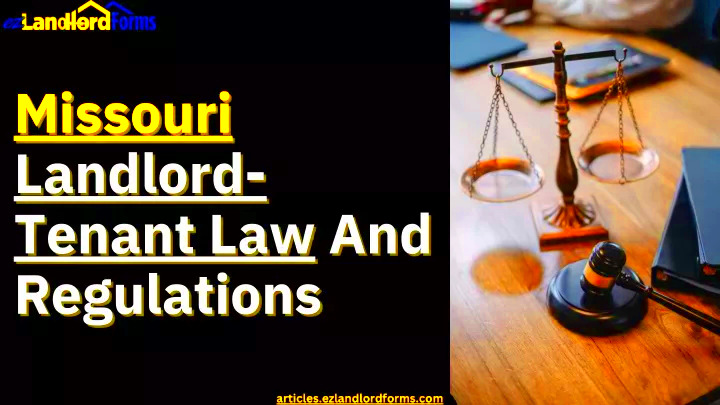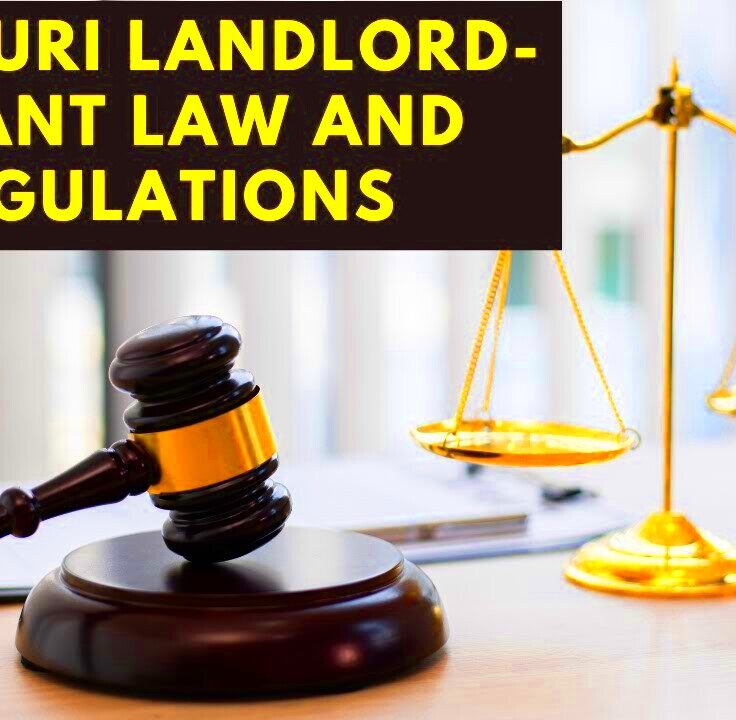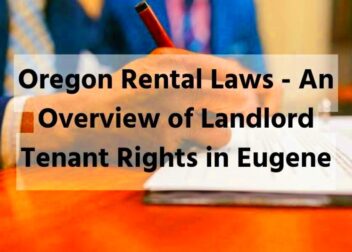Understanding Missouri Landlord-Tenant Regulations
It is very important for both landlords and tenants in Missouri to gain an understanding of the laws regulating their relationship. These laws are meant to guarantee fair treatment as well as to provide guidance regarding rights and obligations. If you are a landlord running a rental house or a tenant acquiring lease of a flat, having knowledge about these rules can help you avoid any form of conflict or confusion.
Missouri landlord-tenant statutes are encoded in Chapter 535 of the Revised Statutes. This chapter comprehensively talks about lease contracts and eviction procedures, making it clear to both parties involved what they should anticipate. The regulations are aimed at achieving a fair equilibrium between tenant’s rights and welfare. At the same time, they enable landlords to keep their properties in good shape and be paid fairly for the rental houses that they own.
Key Responsibilities of Landlords

There are some important tasks that landowners in Missouri must accomplish. Below are some of their significant responsibilities:
- Maintaining Habitable Conditions: Landlords must ensure their rental properties are safe and livable. This includes keeping plumbing, heating, and electrical systems in working order.
- Respecting Tenant Privacy: Landlords must provide tenants with adequate notice before entering the rental unit, typically 24 hours, unless there is an emergency.
- Handling Security Deposits: Landlords must follow state laws regarding the collection, holding, and return of security deposits.
- Providing Written Lease Agreements: A clear lease agreement is vital. It should outline all terms, including rent amounts, payment due dates, and rules for the property.
- Addressing Repairs Promptly: When tenants report maintenance issues, landlords are responsible for addressing them in a timely manner.
Key Responsibilities of Tenants
Five Types of Responsibilities for Renters in Missouri, as Required by Law.
- Paying Rent on Time: Tenants must pay their rent as outlined in the lease agreement. Late payments can lead to penalties or eviction.
- Keeping the Property Clean: Tenants should maintain a clean living environment and not cause damage to the property.
- Reporting Maintenance Issues: It’s essential for tenants to report any maintenance or repair needs promptly to the landlord.
- Following Lease Terms: Tenants must adhere to the terms of the lease, which may include rules about pets, noise levels, and subletting.
- Respecting Neighbors: Tenants should be considerate of neighbors and their rights to a peaceful living environment.
Lease Agreements and Their Importance
In Missouri, a lease agreement is significantly important and necessary for the landlord-tenant relationship. It shows what one expects about the terms and conditions of renting a property through writing. Making it plain helps avoid misunderstandings that would otherwise arise later meaning it’s vital for landlords and tenants to know its worth.
The following are the detailed provisions of a well-written lease agreement:
- Rent Amount and Payment Terms: This includes how much rent is due, when it is due, and acceptable payment methods.
- Duration of the Lease: It specifies whether the lease is month-to-month or for a fixed term, such as a year.
- Rules and Regulations: The lease should include any specific rules, such as pet policies, noise restrictions, and maintenance responsibilities.
- Consequences of Violating the Lease: It should outline what happens if either party fails to meet their obligations, including potential fees or eviction processes.
Both parties are safeguarded by a written lease agreement because it makes things clear and can help resolve any differences or disputes in the future. If you are a tenant, always read your lease carefully and ask questions about anything that is unclear. As for landlords, ensure that your lease is in accordance with Missouri law to protect your interests.
Security Deposits in Missouri
In Missouri, standard lease agreements usually include security deposits, which serve as a protection for landlords against possible damage or unpaid rent. To be compliant with state laws, it is very important for landlords and tenants to understand how these types of deposits work.
For your reference, Missouri has the following points concerning security deposits:
- Amount: Landlords can typically charge up to one month’s rent as a security deposit. Some landlords may ask for more, but this should be clearly stated in the lease.
- Holding the Deposit: The security deposit must be kept in a separate account, and landlords should inform tenants where it is held.
- Return of the Deposit: Landlords must return the security deposit within 30 days after the tenant moves out, along with an itemized list of any deductions.
- Reasons for Deductions: Common reasons for withholding part or all of the deposit include unpaid rent, damages beyond normal wear and tear, and cleaning costs.
To refrain from losing their deposit, the renters have to do maintenance for the place. When entering a house or when vacating it, one must note down what was there in order to avoid losing their money taken as deposits. In this way, should there arise a disagreement concerning getting back the amount used for securing an apartment; then this record would help a lot.
Understanding Eviction Process in Missouri
Missouri’s eviction procedure isn’t easy to understand; however, it is important for landlords and tenants alike. Basically, eviction is a legally taking back of house from tenants by landlords. There are certain reasons why landlords may seek for eviction such as failure to pay rent or lease agreement breaching.
Here’s a quick synopsis of how the eviction procedure works in Missouri:
- Notice to Tenant: Before filing for eviction, landlords must provide tenants with written notice, typically a Notice to Quit or a Notice of Rent Due, depending on the situation. This notice informs tenants of the violation and gives them a chance to rectify it.
- Filing for Eviction: If the tenant does not comply with the notice, the landlord can file an eviction lawsuit in the appropriate court.
- Court Hearing: A court date will be set where both parties can present their case. If the court rules in favor of the landlord, they will issue an eviction order.
- Eviction Execution: If the tenant does not leave by the specified date, the landlord can seek assistance from local law enforcement to carry out the eviction.
Tenants should be apprised of their rights in the eviction process. Timelines must be observed, if any notices are sent, hence making it very important to respond verbatim, moreover consultation from a lawyer is needed for those who don’t comprehend this area well. Moreover, so as to evade claims of wrongful eviction that can cause legal problems and fiscal responsibilities they must comply with all court rules themselves.
Rights and Protections for Tenants
Missouri tenants have various rights and protections which guarantee them comfortable living conditions in their rental homes. The knowledge of their rights goes a long way in helping them speak for themselves as well as foreseeing what they should expect from landlords.
In Missouri, these are several crucial rights and shields for renters:
- Right to a Habitable Home: Tenants are entitled to live in a rental unit that is safe and meets health standards. This includes working plumbing, heating, and electrical systems.
- Protection Against Discrimination: Under federal and state laws, landlords cannot discriminate against tenants based on race, color, religion, sex, national origin, disability, or familial status.
- Right to Privacy: Tenants have the right to privacy in their homes. Landlords must provide reasonable notice (usually 24 hours) before entering the rental unit, unless there’s an emergency.
- Protection from Retaliation: If a tenant complains about unsafe conditions or exercises their legal rights, landlords cannot retaliate against them, such as raising rent or evicting them.
- Right to Withhold Rent: If the landlord fails to make necessary repairs that affect health and safety, tenants may have the right to withhold rent, but they should follow proper procedures.
If the tenants understand their rights, they can be empowered and handle their renting circumstances better. Whenever tenants perceive a violation of their rights, it is usually advisable to seek legal assistance.
Common Disputes and How to Resolve Them
There can be various reasons leading to disagreements between owners of properties and people renting them, hence it is necessary to deal with these matters promptly in order to keep a conducive environment for renting. Knowing typical problems and their resolutions will save you hours of frustration.
The most common arguments and their handling methods are provided here:
- Non-Payment of Rent: If a tenant misses a rent payment, communication is key. Both parties should discuss the situation and explore payment plans or extensions if needed.
- Property Repairs: Disagreements often occur over necessary repairs. Tenants should report issues in writing, and landlords should respond promptly. If disputes continue, tenants can contact local housing authorities.
- Security Deposit Deductions: When a landlord withholds part or all of a security deposit, tenants should request an itemized list of deductions. If unsatisfied, they may seek mediation or legal action.
- Lease Violations: If a tenant receives a notice for a lease violation, they should address the issue immediately. Open communication with the landlord can often resolve misunderstandings.
In a lot of instances, mediation services may facilitate fair compromise between two parties as an alternative to litigation. Furthermore, maintaining records of all conversations and contracts can be useful in the settlement of conflicts.
Frequently Asked Questions about Missouri Landlord-Tenant Laws
It can be difficult to comprehend the laws surrounding landlords and tenants, and we often question what our rights and duties are. Below are some of the most common inquiries which may provide clarity on significant matters.
- What is the maximum security deposit a landlord can charge?
In Missouri, landlords can charge up to one month’s rent as a security deposit. - How long does a landlord have to return my security deposit?
Landlords must return the security deposit within 30 days after the tenant moves out, along with an itemized list of any deductions. - Can a landlord evict me without notice?
No, landlords must provide written notice before filing for eviction, giving tenants a chance to address any issues. - What should I do if my landlord doesn’t make necessary repairs?
Tenants should notify the landlord in writing about the repairs needed. If the issue remains unresolved, tenants may contact local housing authorities or seek legal advice. - What protections do I have against retaliation from my landlord?
Tenants are protected from retaliation if they exercise their legal rights, such as filing a complaint about safety violations.
In case of more inquiries concerning your solo circumstance, it might be an idea to contact nearby tenant support associations or legal experts that can offer customized counseling.
Conclusion on Missouri Landlord-Tenant Regulations
Missouri landlord and tenant regulations must be understood by both parties involved in any rental agreement. The rights and obligations defined by law help prevent conflicts and make life easier for everyone. Landlords are required to maintain their buildings and respect the rights of their tenants, while the latter should observe their commitments as well as understand the ways they are protected under the law. Having clear lease contracts, managing security deposits properly, or having a good communication can go a long way in minimizing misunderstandings. It is also worth noting that as far as disputes are concerned, landlords’ need not worry because both parties have fair access to resources and legal paths for resolving issues at hand. In this way that respect can be encouraged on both sides leading to a successful renting experience.


